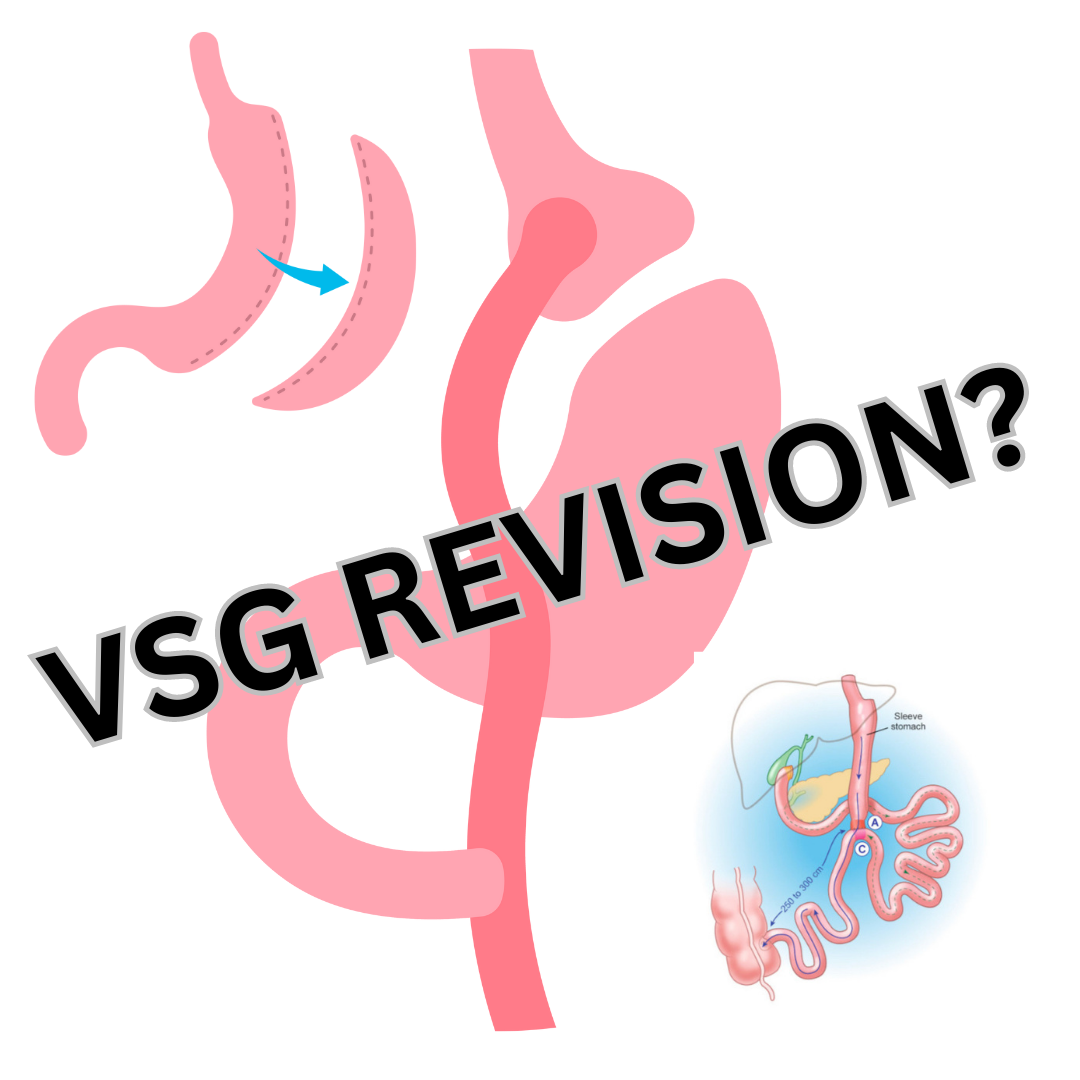Revision Options After Sleeve Gastrectomy, Part 1
Obesity is a multifactorial and chronic disease. As with any chronic disease, keeping the disease cured requires lifelong diligence and work. As part of this work, sometimes multiple treatments or interventions will be needed to cure obesity, depending on the patient’s unique metabolism and health history.
The chronic nature of this disease is highlighted in the results we see after a sleeve gastrectomy. For many patients, the sleeve gastrectomy is an excellent bariatric / metabolic surgery. While all bariatric surgery is safe, the sleeve gastrectomy is the “safest of the safe” operations. There is no rerouting of the intestines after a sleeve gastrectomy, so vitamins, nutrients, and medications are all absorbed through the original pathways. Patients do very well after a sleeve gastrectomy, with studies showing an average of 60% excess weight loss. Many patients lose even more weight, losing in excess of 200 pounds after a sleeve gastrectomy. 
However, in a subset of patients, some patients after a sleeve gastrectomy do not reach their health goals or they may regain some of their weight back. In the majority of cases, this is NOT the patient’s fault or the result of anything they have been doing or have not been doing. This is because each patient has a unique disease with a unique metabolism. The disease of obesity in some patients is stronger and more resistant to our initial treatment of a sleeve gastrectomy. In this case, just like how additional medications are prescribed for patient with difficult-to-control hypertension, we employ additional treatments for a patient whose obesity is not fully controlled with a sleeve gastrectomy alone. Based on the patient’s history, these additional treatments can include medications versus revisional surgery. Two great options for revisional surgery after sleeve gastrectomy include revision to a SADI-S operation versus a revision to a Roux-en-Y gastric bypass. We will compare these two revision options in future posts.
Obesity is a chronic disease. However, with persistence, diligence, and follow-up with your bariatric team, we can cure the disease and achieve your health goals.



